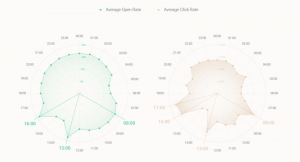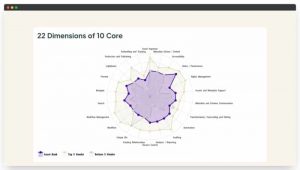Advertisers Spit Out Cookies, Tracking What Readers Read In 2023
![]()
Brands often encounter challenges in planning timely and relevant campaigns, according to Riley Mackey, associate media director at Charts + Darts, a full-service agency.
Mackey said the company relies on tools like Teads Media Barometer that provides insights to help Charts + Darts clients such as Advanced Micro Devices (AMD). The Data Suite powers the barometer by tracking what people read in different regions.
That helps him determine content trends on publisher sites for AMD and others. Brands gain a better understanding of contextual associations, such as where and how the brand appears in content and context across the web without the use of web browser cookies.
Contextual targeting has become one way that brands and publishers manage the void across the web from browsers such as Apple Safari, Mozilla Firefox, Microsoft Edge and, soon, Google Chrome.
Teads has its hand in many buckets, from television to contextually analyzing what viewers read on publisher sites.
What type of ads did consumers engage with with this year? The 2023 Media Barometer: Contextual Chronicles looks back at consumer engagement.
The report details 2023’s media highlights, analyzing data from more than 3,000 content partners to unveil the year’s top trends, consumption spikes and brand opportunities. Each diagram examines percentage of content viewed across partners.
The world felt the impact of Prince Harry in January 2023 when the memoir “Spare” revealed intimate details of his life, from Princess Diana’s death to recent Royal Family feuds.
The data shows that public perception of Harry consistently carried a negative tone, reflecting challenges in his royal life and conflicts with the media. While the sentiment peaked in January, the negativity continued to spike through June.
Teads data shows that by March a contextual content surge centered on key cult television shows like “The Last of Us” and “Succession.” Each drove up readership in relevant contexts based on video games for “The Last of Us” and family and relationships for “Succession.”
Ranked by percentage of pageviews, the chart is designed to demonstrate other topics that readers have interest in. Some 65% of people who read about “The Last of Us,” also were interested in reading about video gaming. The 40% who were interested in reading about “Succession” were also interested in reading about family and relationships.
Beyoncé’s Renaissance Tour took the spotlight in May as it sparked widespread excitement, influencing not only music but also family gossip, technology, and fine art. The tour became a cultural phenomenon. In the music category, pageviews hit nearly 70% vs. the contextual category.
In November, Collins and Cambridge dictionaries chose an AI-related Word of the Year that highlights the increase in artificial intelligence interest — specifically ChatGPT.
ChatGPT’s content saw a tenfold rise by March. The turmoil in OpenAI’s board and management in November sparked ongoing discussions, from Microsoft Bing’s integration into search and other application to Italy’s ban of ChartGPT, and finally OpenAI’s leadership change when the board ousted Sam Altman, the company’s co-founder.
December has seen anticipation for the UEFA Euro 2024 grow. The excitement peaked during the final qualification stages, with a notable increase in readership — about 80% in November and nearly 100% in December.
The height of this readership occurred at the time of the announcement of the final matchups, as football fans awaited to learn their teams’ opponents for the summer 2024 showdown.
(5)
Report Post






